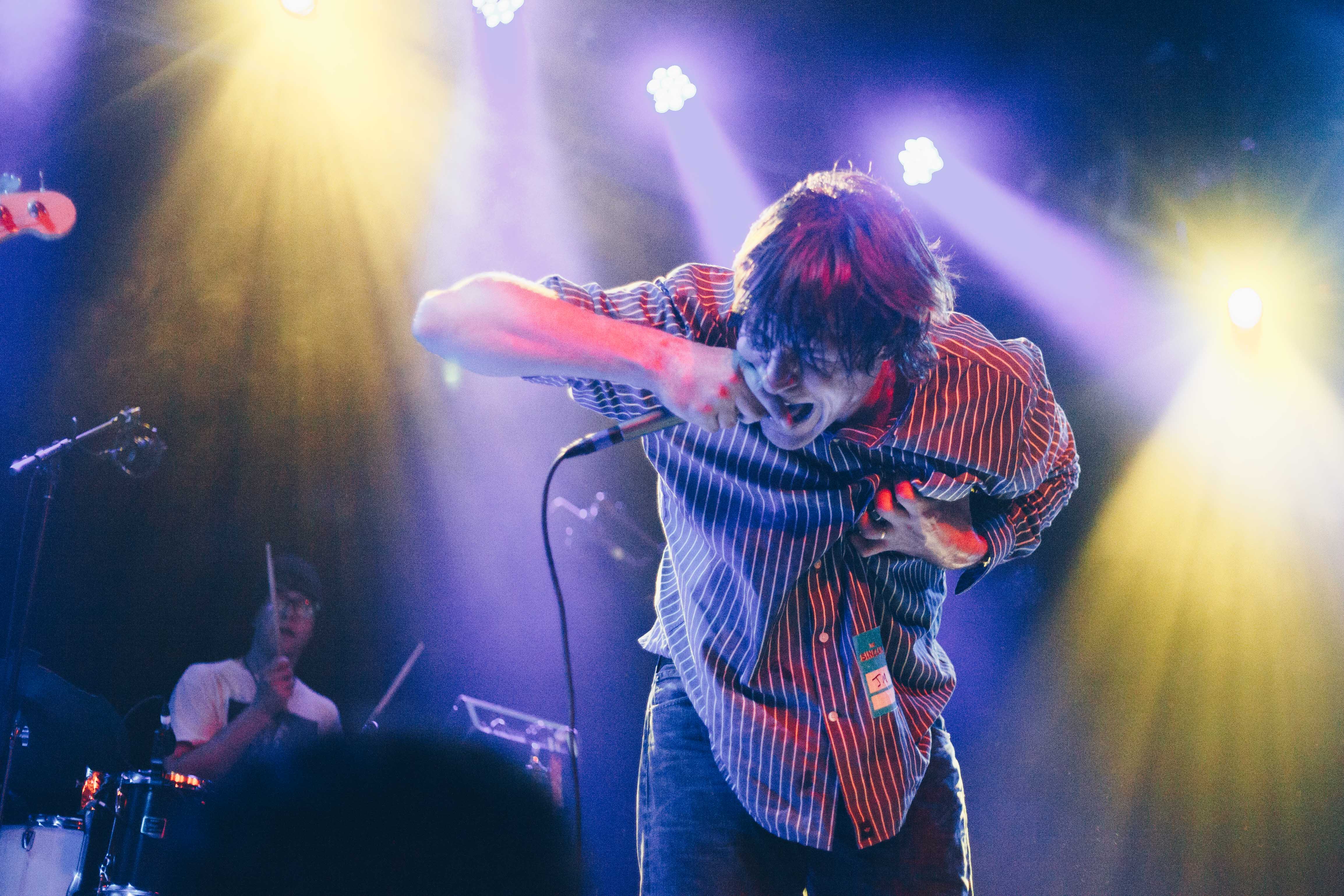
February 12th, two days before Valentine’s Day, marked John Maus’ first performance at The Sinclair with a backing band, as part of his current tour in promotion of the long-awaited album, Screen Memories, his first release in six years.
Sometime in 2011, John Maus tweeted, “GARY WAR IS THE FUTURE.” This may still be the case for the night’s opener—Gary War—but the endorsement wasn’t fully appreciated by the crowd, which was distracted by its anticipation for Maus. This was unfortunate, as War had much to offer. But despite this and the night’s sparse set-up, it seemed that nothing could subtract from the dense but intricate sonic whirlpool that defined War’s set.
War sometimes sounded like three songs playing at once; an experience that was as disorienting and overwhelming as it was beautiful. Something always seemed slightly off—be it the subtle desynchronisation between the drums and guitar or the abrupt shifts in tonality—until it wasn’t. His sound was viscous, including his vocals, which were never bare or “naked,” always mediated through some filter, and only occasionally discernible only when the rhythmic layers of the loop pedal weren’t swallowing them whole. Sometimes this worked in War’s favor and other times not. The sharp but short-lived guitar solos (somewhere between kitsch and punk) were appropriately intermittent and offered a nice relief from soundscapes that sometimes bordered on the audibly incoherent. War himself was fairly stoic throughout, and left the stage as quietly and modestly as he entered it: I don’t think he ever said a single word.
Enter John Maus. Or more precisely: enter his three backing members shortly followed up by an exhausted-looking Maus. But Maus’ seeming fatigue was thankfully just that: seeming and fleeting. Without hesitation, he launched into the foot-thumping “Castles in the Grave,” a sped-up, synth-y take on a funeral march. Maus then immediately enacted the manic gestures his performances have become known for—the quick self-inflicted jabs to the face, the up-and-down hands-on-the-thighs panting, the outward gasps for air and, of course, the exorcism-esque roof-piercing howls.
This night’s performance wasn’t any different. Being at a Maus show is like watching someone start a mosh pit in church. Not just because of the somber, haunting musical church modes characteristic of Maus’ music, but because of his on-stage Pentecostal-like episodes—he’s possessed, he’s made contact. But there is no Holy Spirit; instead he’s made contact with himself, the human, John Maus. Seeing him makes you want to feel human too. As a YouTube commentator sardonically remarked on a recent performance of Maus in Berlin: “Maus never learned circular breathing.” Yeah, but that’s kind of the point.
Following “Castles” was “Rights for Gays,” a 2007 cut that (rightfully) has become something of a crowd pleaser. Then out came Maus’ latest, “The Combine,” a dystopic anthem that posed an interesting dialectical dilemma to the future-forward ethos of the former song, rendering it sadly quixotic. The rest of the set seamlessly pulled together various tracks from Maus’ ouvre (e.g., “Time To Die,” “Bennington (2007),” and “And the Rain”) with new hits from Screen Memories, including the comically dark, “Pets,” during which the crowd chanted over and over: “Your pets are gonna die!” There was a memorable, but admittedly hackneyed, moment during “Cop Killer” when the stage became awash in police siren red, and Maus’ terrified face let out a goosebump-inducing scream on par with some of Hollywood’s best.
After leaving the stage, Maus and company came back to perform the encore, “Believer,” but by then Maus was already visibly burnt; the exhaustion apparent when the “r” in “They call me the Believer!” was unintentionally left out. With the other letters soon to follow.
What to say of Maus’ “new approach” to live shows? Are his sets better solo karaoke-style or with bandmates? Some argue in favor of the latter. And maybe there is something to be said for that. Yet, for Maus, it hardly seems to matter in the end. Bandmates or not, Maus has an uncanny ability to invoke the spiritual in all of us.
